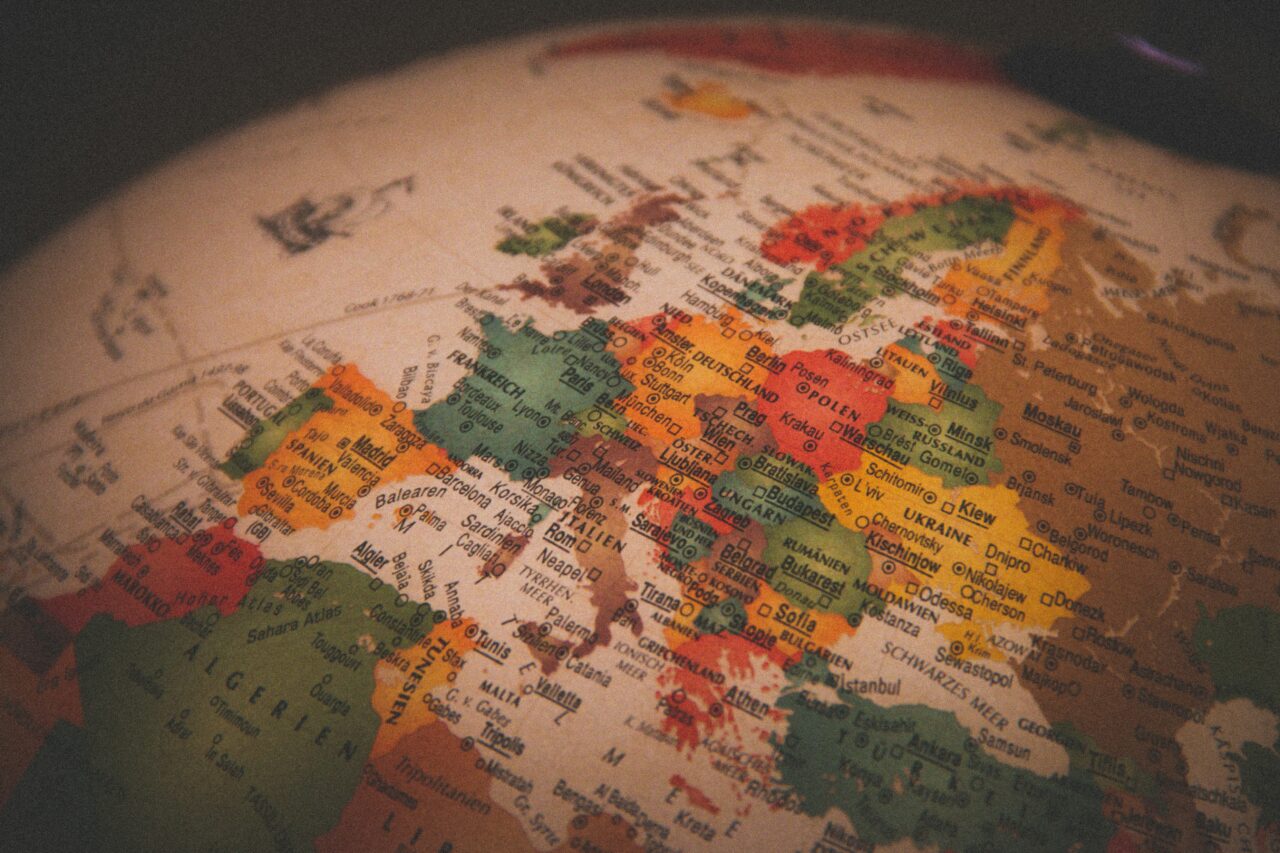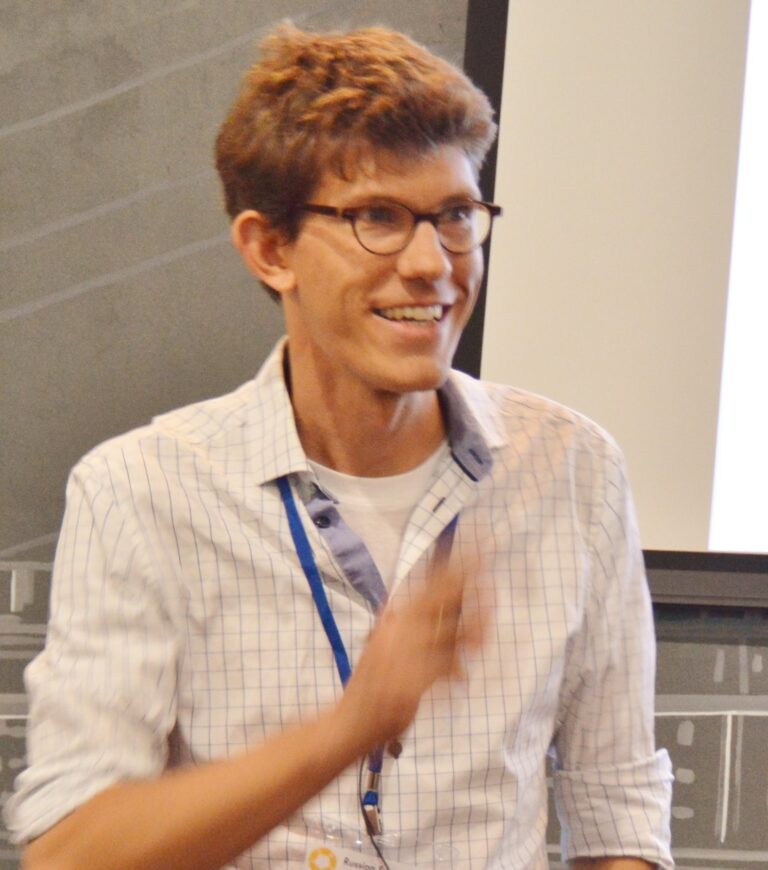
Artificial intelligence is transforming not only our lives, but also the global political landscape. With increasingly refined and efficient tools - from biometric data recognition to physical and online tracking - authoritarian regimes are able to exert surveillance and control at unprecedented levels. Understanding how they use these technologies, and where they are heading, is more urgent than ever. Michael Rochlitz, an IMT School alumnus and now professor at Oxford University, whose research spans the political economy of Russia, Eastern Europe and Eurasia, helps us understand this shift.
Today, some societies are described as 'algorithmic governments'. What does that mean?
This refers to systems that centralize citizen data, officially to make governance and public decision-making more efficient, but that also include a control component.
In China, for instance, which we are currently studying, artificial intelligence research has exploded over the past decade. Integrated surveillance systems have been built linking police with citizen data. As an autocracy with access to huge amounts of data, China can train these systems very effectively. It is now also exporting these so-called 'safe city solutions' through the Belt and Road Initiative to Central Asia, the Caucasus, Africa and other regions of the world: it is true that these systems improve administrative efficiency, but they also involve a form of control. Interestingly, similar systems are also emerging in the United States, in Silicon Valley, for example with Palantir.
Right now we are trying to analyze these two phenomena together, to analyse how civil societies, particularly in Europe, are caught in a kind of 'pincer movement' between Chinese and American surveillance technology. Our societies today are very weak in reacting to these challenges, partly due to populism and polarization.
You study authoritarian regimes and surveillance. What do you think are the most misunderstood aspects of these political systems?
One of the most common misconceptions is the idea that life in autocracies is miserable. Many people assume citizens are constantly unhappy and oppressed. I lived in Russia from 2012 to 2017, and returned frequently until 2019. Then came the pandemic and the war, but life was still relatively comfortable: quality of life had improved a lot over time.
There is an entire body of literature on '"authoritarian responsiveness", meaning how these regimes try to provide public services. At the same time, it is obviously difficult to live there: governments cannot be challenged, corruption is rampant, and elites enrich themselves by controlling economic resources. In Russia, in particular, there is a small group around Putin that became extremely wealthy. Life could certainly be much better, but it is far from horrible for most people. And that is an important difference from 20th-century autocracies.
That said, the risk of regression always remains. Russia is clearly heading in that direction. China, too, is moving from a more institutionalized system to a more personalistic one. Should a future leader with extreme ideas come to power, there may be no institutional safeguards. It is by no means a foregone conclusion that the 20th century cannot return.
What do economic indicators like GDP not tell us about how autocracies work?
GDP can be very misleading. After the 2022 sanctions, many analysts predicted that the Russian economy would collapse by 10-15 per cent. Instead, it showed growth of 3-4 per cent. So, on the surface, the economy looks fine despite the sanctions. But if you look behind the scenes, you can see what is really going on.
Spending on health and education has dropped dramatically. Over the past 30 years, Russia had built an internationally competitive university system. After 2022, international networks broke down and many qualified professionals left the country. The same happened in IT, artificial intelligence and technological research. This is now the main bottleneck in the defense sector, as Russia no longer has access to these resources, such as for example computer chips.
They still have natural resources, they sell oil and gas, and they use that money to finance the war industry: tanks, weapons, ammunition. All of that is reflected in the GDP. But GDP does not show infrastructure decay, deterioration of health, rising mortality, or the collapse of education - factors that will have very serious long-term consequences.
What are the strategies by which media and artificial intelligence influence political control in countries like Russia and China?
In 2016, we conducted a randomized controlled experiment in Russia. We gave free access to the last online opposition TV channel to people in 15 cities, a few weeks before the parliamentary elections. In parallel, we administered questionnaires.
We found that older people, who mainly get information from TV, were more receptive to alternative viewpoints. They were much less likely to vote for Putin, once they heard an independent voice. Online users, on the other hand, were more polarized: when confronted with opposing views, they reacted negatively and became even more determined to stick to their views. This is why authoritarian regimes aim to control television first and foremost: it is the most effective tool to shape public opinion.
Until around 2022, the Internet in Russia remained relatively free, partly because it provided a useful information flow for the regime itself. Independent online media could reveal local realities that officials or intelligence services tended to hide. But even that space is now closing.
That is exactly what I love about comparative political economy: you can go to the field and study different places. I’m now at the School of Global and Area Studies di Oxford, which takes an approach that is a bit different from political science or economics departments. There, the focus is often on mechanisms, but context is overlooked.
What I try to do is to combine sound quantitative methods and causal inference with a direct knowledge of places: knowing the language, having lived there, knowing the people, having taken the local trains, seen the dusty streets... having a "boots on the ground'.
What advice would you give to those who want to combine research and policy in complex international contexts?
You need to think carefully about what you want to do on a daily basis. In academia, you spend a lot of time with students, between teaching and supervising. And then there are the administrative tasks. At Oxford, for instance, where I direct a master's programme, there is a lot of bureaucracy. But the balance between teaching and research is good: you have a lot of contact with people.
Work in policy-making is different. You talk to officials, give public talks, write reports. But often, institutions that hire policy researchers are not interested in academic publications, and the work can be less in-depth.
Elena Miscischia
